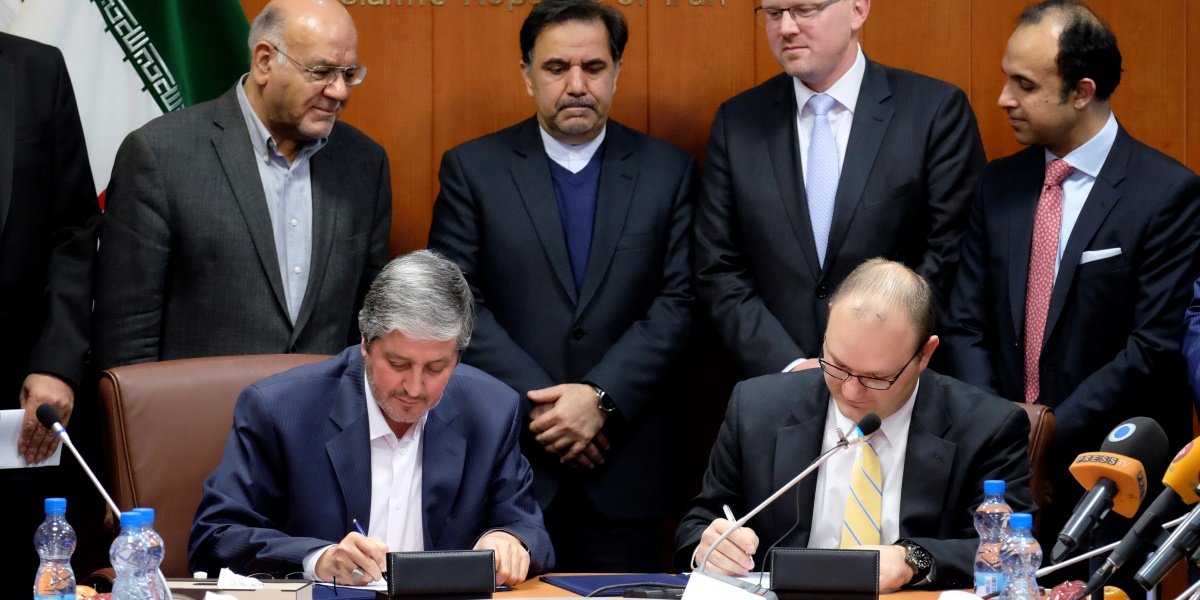US-China trade war: A big bluff or not?
The trade war between the U.S. and China will not remain confined to the two, but could have huge impacts on many other actors in the global system
More


Turkey's Qandil offensive and Iran's greed
Tehran sees Turkey's counterterrorism operation in Qandil as a threat to its influence over Iraq and across the region more generally
More
How can we contextualize the initiative for banning the hijab? What is this ban’s main function? Is this law just another step of introducing discriminatory laws that treat Muslims differently than other religious groups? What can the Islamic Religious Community do about these plans?
Washington's decision to develop a new Middle East policy geared toward protecting Israel's narrow and ultra-nationalist interests alone created a new trend in regional affairs.
The U.S.'s approach to the crises in Iraq, Libya, Syria, Egypt, Yemen and Palestine since 2010 has been about its experience of the hegemonic crisis.
The reappearance of discourse on ‘moderate Islam', possibly with on the U.S. administration's request, cannot be a solution in the fight against extremism
A Great Challenge for Regional Powers
Unfortunately, the ambitions of regional powers stop them from addressing pressing problems. The Qatar crisis is a case in point.
More


Can Trump Contain Iran?
It is true that the Iran expansionism is one of the great threats that must be stopped. However, Trump's current policy on Iran could only cause more chaos and terror in the Middle East
More
Trump will not simply bring forward the pragmatic framework of the U.S.'s grand strategy which was suppressed during the Obama period, but attempt to fully renew the ideological framework as well
Iran looks like the winner of the current regional game, however in the long run, it cannot sustain its policies, the cost of which will continue to rise, politically, militarily and economically
Iran is trying to establish its own area of influence before Trump is sworn in and points to Iran as the main other in the Middle East
The doctrines of President George W. Bush and Obama made long-term uncertainty innate to the region, which would change the security and alliance structures of the Middle East. But how?
Which approach has shaped Irans understanding of foreign policy after the Revolution? What are the basic approaches to Irans interest-based foreign policy?
An agreement that included almost all of the terms in the recent deal had been signed among Turkey, Brazil and Iran in 2010.
The West makes an effort to win Iran back because a controllable Iran is the most natural ally of the West in the region.
The West still does not trust the political actors holding Islamic traditions in the Middle East, and it does not know how to interact with them effectively.
The 20-year rivalry between Supreme Leader Ali Khamenei (above), who is the guardian of the Islamist regime, and Ali Akbar Hashemi Rafsanjani, the chairman of the Assembly of Experts, came to a head in the recent conflict in Iran. The latest developments in Iran following the recent highly disputed presidential elections have created a wishful political atmosphere which has been characterized by hasty conclusions.
This article considers the August 2008 visit to Turkey by Iranian President Mahmoud Ahmedinejad, and analyzes relations between Turkey and Iran in general. The tensions and crises that followed the 1979 Iranian Revolution are briefly presented in order to provide a better understanding of the present state of relations. Then we draw a picture of the situation after the Justice and Development Party (AKP) came to power in 2002, bringing widespread changes to Turkish foreign policy. We also call attention to Turkey’s changing role in the regional balance of power, and to the significance of that role both in Turkey’s relations with Iran and with the United States.
İsrail’in dış politika stratejisine baktığımız da “tehdit” algısının çok büyük olduğunu görürüz. Kuruluşundan bu yana varlığını tehdit altında hissettiği bu coğrafyada İsrail Devleti, etrafındaki Arap çemberini çeşitli stratejilerle kırma çabasındadır.














